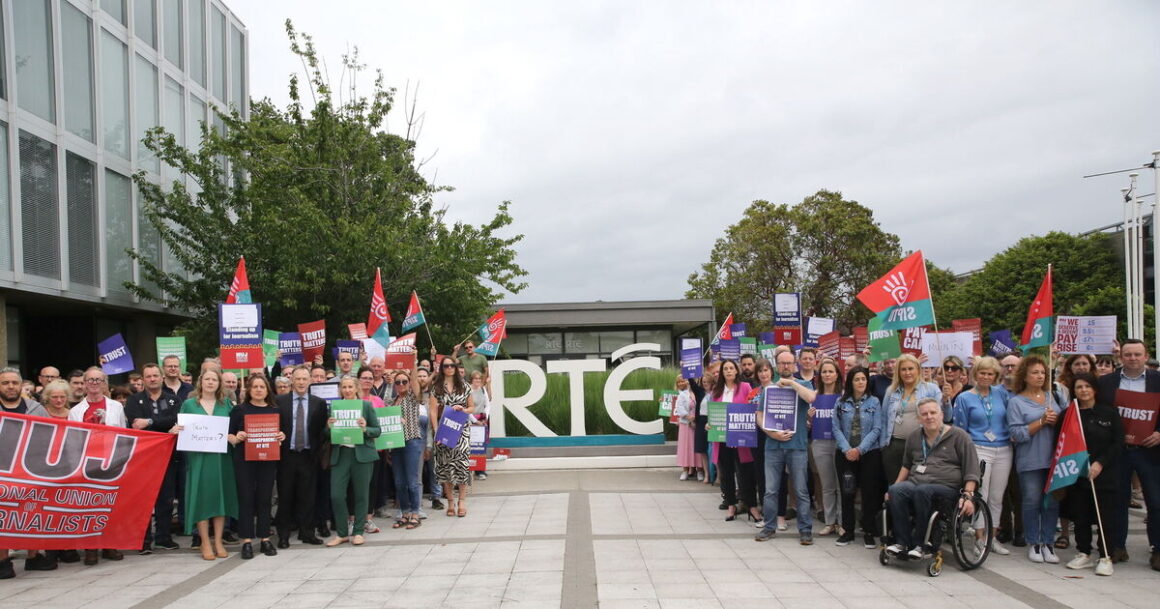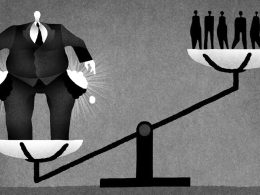By Padraig O’Flynn
Yet another report (the fifth, at last count) sparked by recent scandals at RTÉ was published recently. It’s an interim report, with a more extensive version to follow in a month or so, along with an expected price tag of around €300,000 from accountancy firm Mazars.
Mazars are best known for working for Donald Trump and his companies until he and his tax returns became untrustworthy… last year. While the ‘there are no winners in this situation’ cliché has been wheeled out regularly by journalists covering the scandal, it’s certainly not the case for some of the big names in the accounting / legal / consultancy fields with a knack for securing lucrative government contracts.
What is a barter account?
This report delves into what’s known as a barter account (or, more accurately, three separate barter accounts) operated by RTÉ. As the name suggests, a barter account involves the exchange of goods and services (although often also involving cash) between two parties using an intermediary barter media agency.
In this case, three different UK-based agencies were used, and the report indicates they took a commission of over €1.1 million on gross sales of €7.4 million (ad revenue) between 2017 and 2022. Of these sales €1.2 million was spent on goods and services “outside RTÉ’s standard purchasing and procurement processes”. Mazars couldn’t identify any benefit to RTÉ in using the barter media agencies to make purchases, rather than simply cashing in the available trade credit balance.
Although barter accounts are a pretty common occurrence in advertising and media, the commercial benefit to their use by RTÉ appears dubious given the extravagant spending on fine dining, five-star hotels, VIP tickets to an Ed Sheeran concert (almost €14,000) at home and the 2019 Rugby World Cup (an incredible quarter of a million) abroad, and, of course, €5,000 on flip-flops.
Put bluntly, a significant reason for using the barter accounts seems to be as off-the-books slush funds to pay for jollies for RTÉ management and the corporate clients they were chasing for advertising revenue. Another use of them was to hide the infamous €150,000 secret payments to Ryan Tubridy.
No to privatisation
Numerous bad-faith actors will seek to benefit from this scandal and push a self-serving agenda of privatisation and increased commercialisation, not least the political establishment. This is despite another causative factor of this crisis: Fianna Fáil and Fine Gael stuffing the upper echelons of RTÉ with their cronies since its inception.
Given both parties’ history of corruption and financial irregularity from top to bottom (which makes this saga look like a Teddy bear’s picnic), is it any wonder it’s come to this? To see the hypocritical pearl-clutching and grandstanding from their politicians has been laughable.
They will also likely look to more job and pay cuts among ordinary, long-suffering RTÉ workers to balance the books in the face of plummeting licence fee payments while protecting the six-figure salaries and jobs of the culpable upper management and the “stars”. Billionaire owners of private media competitors will also be licking their lips looking for more of the licence fee money for themselves and, down the line, perhaps even looking to buy up pieces of a partially privatised RTÉ.
What kind of public broadcaster?
Socialists oppose all regressive taxes and charges, including the TV licence (and the long-threatened broadcasting charge). We favour funding and creating genuine public broadcasting through progressive taxation and salary caps to end obscene pay packets of the top brass and the “stars”.
The organisation should be democratised by replacing the discredited management with a decision-making body of ordinary RTÉ workers and representatives of the general public, artists, documentary-makers, etc. In a media world dominated by billionaire-controlled private media (on- and offline) and right-wing governments taking tighter control of state media (from the UK to Russia), working-class-led alternatives have never been more vital.












